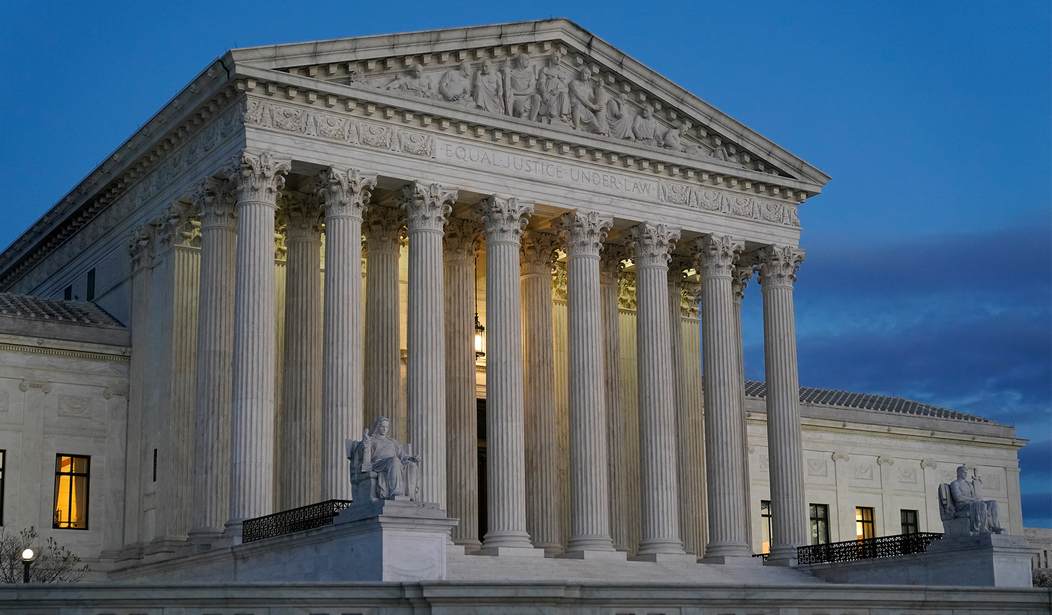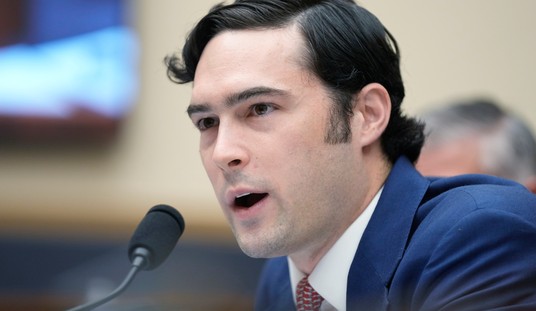This case might be a tough one – not just for the Supreme Court but also for proponents of gun rights. The court is expected to issue a ruling in the case of Rahimi v. U.S., which challenges a federal law barring domestic abusers from owning firearms.
Zackey Rahimi, involved in several violent incidents, is challenging the law under the argument that it didn’t exist during the founding of the nation. For this reason, his attorneys are arguing his case based on last year’s New York Rifle & Pistol Association v. Bruen ruling, which has been used to strike down a series of gun control laws.
But Rahimi’s case might be a little more tricky:
The case, known as Rahimi v. U.S., which has not been slated for oral arguments yet, involves Texas resident Zackey Rahimi, whose legal problems began in 2019 when he pulled a gun and fired at a passerby who witnessed him dragging his at the time girlfriend through a parking lot.
Rahimi was involved in another shooting months later after getting into a vehicular accident, where he repeatedly shot at the other driver, according to court records. One year later, he threatened a woman with a gun and was charged with aggravated assault. In 2021, he fired several shots into the air after his friend’s credit card was declined at a fast food restaurant near Fort Worth.
While Rahimi is facing separate charges for his violent misuse of a firearm, his public defenders are challenging one of his convictions under a 1994 federal statute that bars people who are subject to domestic violence restraining orders from owning a gun. Those charges were leveled after police obtained a search warrant for his address after the string of shootings, discovering a court-issued restraining order against him by his ex-girlfriend.
Citing the 2022 Supreme Court decision in Bruen v. New York Rifle & Pistol Association, Rahimi’s counsel argues that because there was no regulation that banned guns from people subject to restraining orders at the time of the nation’s founding, the federal statute known as 922(g)(8) should not stand.
The U.S. Court of Appeals for the 5th Circuit sided with Rahimi in March, noting while he’s “hardly a model citizen,” the statute barring him from owning a gun is an “outlier that our ancestors would never have accepted.”
The Biden administration appealed to the Supreme Court, which agreed last month to hear the case.
As the Rahimi v. U.S. case makes its way to the Supreme Court, it presents a unique challenge for proponents of gun rights. Zackey Rahimi’s situation is undoubtedly extreme, as his repeated misuse of firearms to threaten and harm others sets him apart from the majority of cases involving domestic abusers.
This very extremity, however, makes it an appealing case for the anti-gun lobby, as it seems difficult to argue that Rahimi should be allowed to carry firearms. Yet, as defenders of the Second Amendment, we must remember the principle that “Hard cases make bad law.”
Kavanaugh and Roberts could take this the way gun rights advocates don’t want this to go.
Hard cases make bad law, and they may stick to doing the politically correct thing.
That being said, this case is a perfect example of not only how a criminal that wants a firearm is always… https://t.co/xibVJzRLo8— Stilettos&Shotguns (@thereal_SnS) July 17, 2023
Using Rahimi’s extreme actions as a precedent to potentially strip law-abiding Americans of their right to defend themselves would be a severe infringement on their constitutional rights. This includes those who have been convicted of crimes and then served their time.
The right to keep and bear arms is a fundamental aspect of individual liberty, and it should not be sacrificed based on the actions of a single individual, no matter how heinous they may be. We should be more than cautious about crafting sweeping laws that affect millions based on rare and extreme cases.
It is also essential to acknowledge that Rahimi’s repeated violations of the statute barring him from owning guns highlight the shortcomings of such laws. Despite the prohibition, he continued to possess firearms and commit violent acts. This raises an important question: Do gun control measures effectively prevent criminals from accessing firearms?
Rahimi’s actions demonstrate that determined individuals will disregard the law, making such legislation largely ineffective at addressing the root cause of gun violence. It is yet another reason why it makes no sense to restrict the Second Amendment rights of others due to an extreme case.
Instead of hastily using Rahimi’s case to enact restrictive gun control measures, we should focus on more effective approaches to address the complex issue of firearm violence. Rather than punishing responsible gun owners who have served their time and reformed, we should concentrate on better enforcing existing laws and addressing the underlying factors that lead to criminal behavior.
Moreover, it is crucial to differentiate between the actions of one individual and the broader group of law-abiding gun owners. Stripping millions of responsible citizens of their Second Amendment rights based on the actions of a single person is neither just nor effective. It is essential to maintain a balanced approach that upholds individual liberties while also ensuring public safety.
To improve public safety, we need to focus on comprehensive strategies that tackle the root causes of violence and address mental health issues, poverty, and societal factors contributing to criminal behavior. By taking a holistic approach, we can create a safer society without infringing on the rights of law-abiding citizens.
In conclusion, the Rahimi case presents a challenging dilemma for those on both sides of the gun rights debate. While his actions are extreme and may sway public sentiment in favor of stricter gun control, we must remember that crafting laws based on outliers can lead to unintended consequences and erosion of constitutional rights. Instead, let us focus on implementing comprehensive solutions that address the underlying issues contributing to violence while safeguarding the cherished right to bear arms for responsible citizens.














